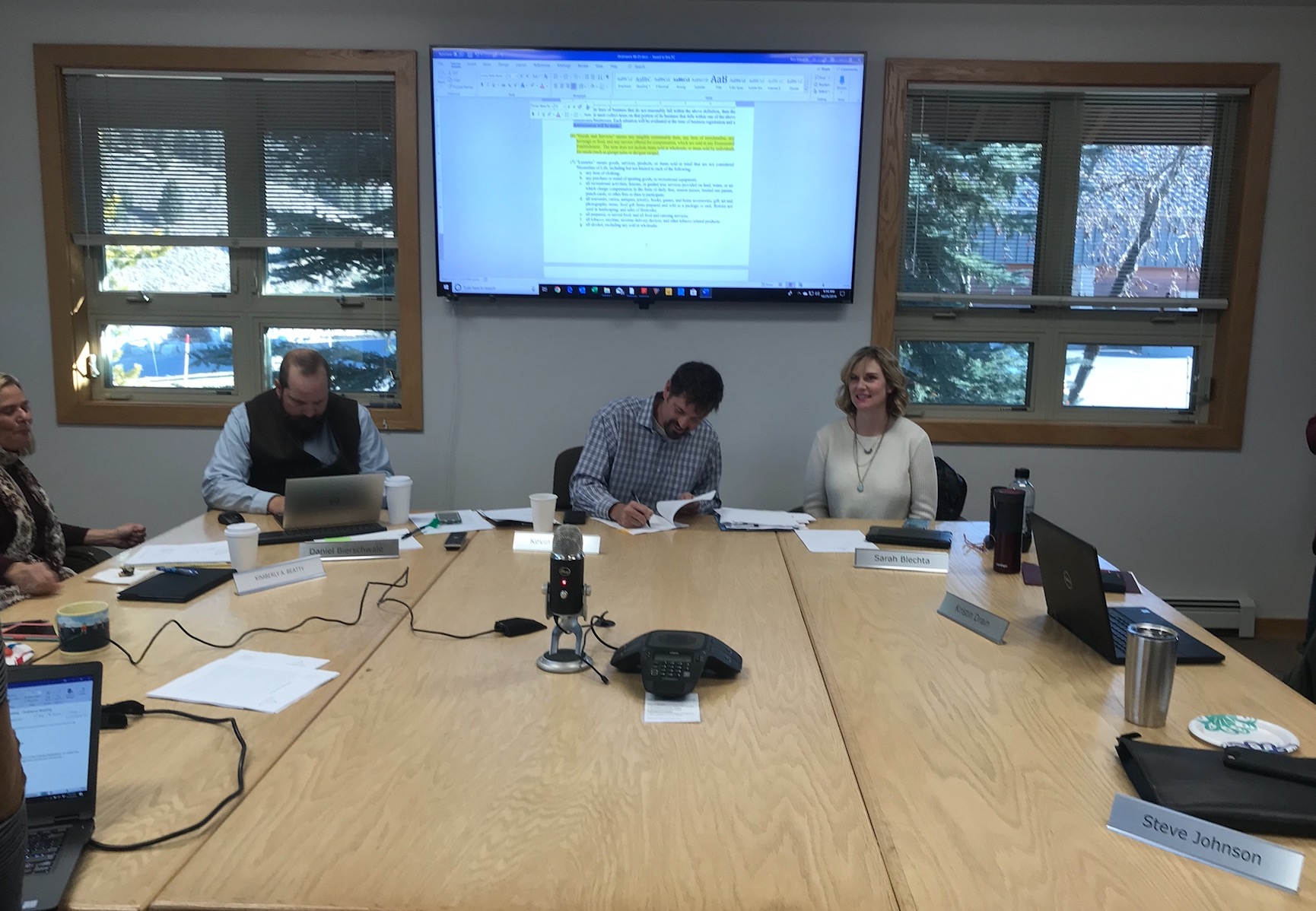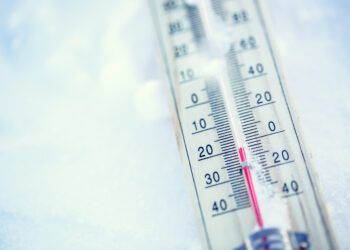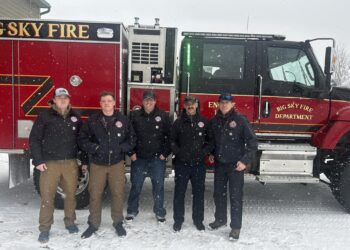By Michael Somerby EBS STAFF
BIG SKY – Closing out a process that took more than six months to finalize, the Big Sky Resort Area District tax board and staff celebrated a significant and hard-wrought achievement at their Oct. 25 open board meeting: the unanimous approval of Ordinance 98-01.
The ordinance in question, the latest in a string put into effect by BSRAD since its inception in 1992, tightened protocol as to when and where a 3 percent resort tax is levied. Collections from said resort tax are then doled out annually in the form of appropriations to various community organizations and projects.
Specifically, this current board and staff sought to clarify language that has, in the past, allowed for businesses to skirt compliance piecemeal or altogether, whether unintentionally or through purposeful exercising of a vaguely defined lexicon specific to the resort tax.
In particular, looseness in the definitions of “Goods and Services,” “Luxuries,” “Necessities of Life” and “Enumerated Establishments” provided wiggle room for inconsistencies in resort tax collections.
According to District Manager Daniel Bierschwale, as quoted by a BSRAD press release, “The district strives for impactful management of funds working to create a legacy for future generations in Big Sky. We believe this ordinance is not only clear but also fair and equitable by helping to aid businesses with compliance and in turn investing in Big Sky’s future.”
Along with introducing the “3Rs,” “Rules, Regulations and Registrations,” the ordinance will most significantly impact businesses that sell alcohol and tobacco and businesses with an enumerated component.
Alcohol and tobacco are now, without deviation, blanketed by the “Luxuries” denomination, meaning that wherever sold, in whatever form, the two items will always be taxed; businesses with an enumerated component, such as the Hungry Moose Market and Deli, will now be able to differentiate taxing their prepared and served food services, while exempting “Necessities of Life” from taxation, such as unprepared and unserved food, personal hygiene products and medicine, among other items laid out by the ordinance.
The latter is intended to lessen the impact of the resort tax on locals and members of the workforce.
“We do not want to continue to propagate a higher cost of living for our locals and our workforce, and so by adding some language that says if a business is actually doing something that is a necessity of life, even though they’re an enumerated establishment, we want to exempt that,” said Chairperson Kevin Germain after the close of the meeting.
All businesses operating within the district are required to register by Dec. 31 of this year, a measure intended to increase proactive compliance measures, and the ordinance goes into effect on Nov. 25.
The road to approval was not without select community and business owner pushback. However, as a testament to the measures of outreach and due diligence carried out by BSRAD in crafting a community-backed ordinance, no one in attendance of the meeting was in opposition to the draft before it was approved and signed.
Visit resorttax.org for additional information regarding the ordinance, training sessions, definitions and the registration process.











